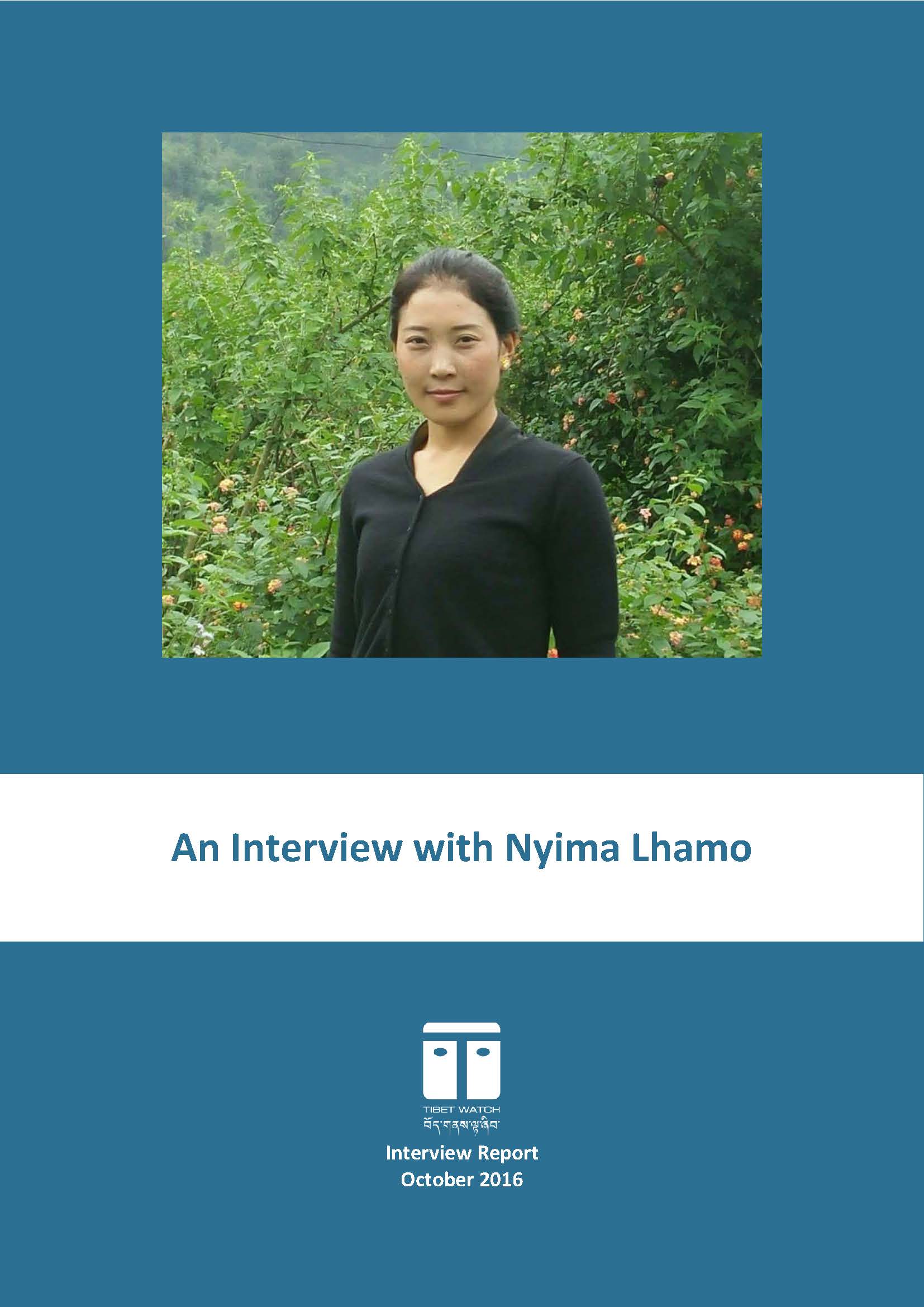
Introduction
On 24 July 2016, 26-year-old Nyima Lhamo, niece of deceased Tenzin Delek Rinpoche, arrived in Dharamsala, northern India, to the safety of exile. She had undertaken a risky and dangerous journey escaping from Tibet in order to tell her story and reveal the truth about her uncle’s death.
Born in 1950, Tenzin Delek Rinpoche was a highly revered and respected lama of eastern Tibet who was known, in particular, for community building and his projects such as orphanages, schools and old people’s homes. Tenzin Delek Rinpoche was arrested at his monastery, along with several associates, on 7 April 2002, on false charges of being involved in bomb blasts in Chengdu. On 2 December 2002, the Kardze Tibetan Autonomous Prefecture Intermediate People’s Court in Sichuan province sentenced Tenzin Delek Rinpoche to death, suspended for two years, on charges of “terrorism and inciting separatism”. His helper and distant relative, Lobsang Dondrup, was also found guilty and executed on 26 January 2003.
Throughout his initial detention period, Tenzin Delek Rinpoche maintained his innocence in several letters and voice recordings. Tenzin Delek Rinpoche’s death sentence prompted an international outcry and it was commuted to life imprisonment in January 2005. However, Tenzin Delek Rinpoche endured years of maltreatment in prison and subsequently suffered from critically ill health. The authorities did not respond to appeals by the family over the years for medical parole. Regular prison visits which prisoners, according to Chinese law, have the right to on a monthly basis, were also denied to the family.
Tenzin Delek Rinpoche died in prison on 12 July 2015. According to authorities, Tenzin Delek Rinpoche died of cardiac arrest. This report gives a detailed account in Nyima Lhamo’s words of the chaotic days immediately following his death.
Despite being very young when Tenzin Delek Rinpoche was arrested, Nyima Lhamo took brave actions on his behalf and on behalf of her family upon hearing of his death in prison. As Nyima Lhamo says in this interview, she was 13 years old the last time she saw her uncle alive.
According to the monks who washed Tenzin Delek’s Rinpoche’s body and changed his clothes before his cremation, his fingernails, toenails and lips were black and his head had a hollow at the back. This led the monks and the family to believe that Tenzin Delek Rinpoche had been poisoned and killed. To date, it has not been possible to conclusively verify whether these symptoms resulted from poison or from illness arising from the conditions of his imprisonment.
Nyima Lhamo’s intention in escaping to exile was to urge the international community to pressure China to conduct a thorough investigation into Tenzin Delek Rinpoche’s death. Furthermore, it is the family’s main concern that China will interfere in the search for Tenzin Delek Rinpoche’s reincarnation. It is the wish of Nyima Lhamo and family that the search be conducted according to tradition and without interference from the state.
Tibet Watch is very grateful to Nyima Lhamo for sharing her story with us.


